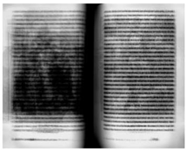In 1914 Alfred Stieglitz responded indignantly to a reader who had cancelled his subscription to Camera Work, the journal in which he had sought to “establish once and for all, the meaning of the idea photography.” Roland Barthes claimed to be delighted by only one of Stieglitz’s photographs, but the book in which he made this confession addresses the very issue that had obsessed Stieglitz to the point of mania. For many readers the effect of Camera Lucida was exactly the one Stieglitz claimed for Camera Work: “photography suddenly assumed a new meaning.”
Barthes had long been fascinated by photographs, but his exploration of “the phenomenon of photography in its absolute novelty in world history” had its specific origin in a request from Les Cahiers du Cinéma to write something about film. The idea did not appeal. As he told friends, “I’ve got nothing to say about film, but photography on the other hand….” Having agreed to write a short piece for Les Cahiers, Barthes’s reflections on photography (photography “against film”) grew into a book written—according to his biographer Louis-Jean Calvet—“at one go, or almost, during the period between 15 April and 3 June 1979.” His mother had died in October 1977 and the book became bound up with his grief over her death. Barthes himself said in an interview that the book was “symmetrical to A Lover’s Discourse, in the realm of mourning.” The whole of the second half of Camera Lucida, in fact, is based around a photograph of his mother—the so-called “Winter Garden” photograph—taken when she was five: “Something like an essence of the Photograph floated in this particular picture.” Just how profoundly Barthes’s private grief and the subject of his professional scrutiny had become intermingled, is made poignantly clear by the upcoming publication of Mourning Diary.
Barthes liked “to write beginnings” and multiplied this pleasure by writing books of fragments, of repeated beginnings; he also liked pre-beginnings: “introductions, sketches,” ideas for projected books, books he planned one day to write. So when Nathalie Léger, editor of Mourning Diary, describes it as “the hypothesis of a book desired by him,” she is accurate in that it was neither finished nor intended for publication; but she is also describing the typical or ideal condition of the books that were published. In a sense Camera Lucida is the desired book of which Mourning Diary is the mere hypothesis, while itself being a more elaborately formulated series of hypotheses—not...
You have reached your article limit
Sign up for a digital subscription and continue reading all new issues, plus our entire archives, for just $1.50/month.
Already a subscriber? Sign in





